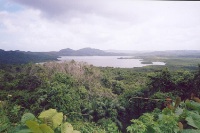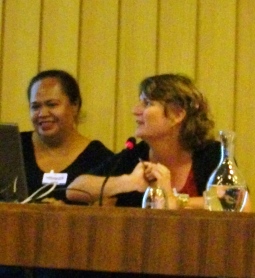Natural Sciences

- © UNESCO/SC
- Biosphere Reserve of Ngaremeduu (Palau)
In accordance with UNESCO's global mandate and the development priorities of the small islands countries of the Pacific, the UNESCO Natural Sciences sector in the Apia Office focus on the following areas of action:
Hydrological sciences - International Hydrological Programme
Ecology and Earth Sciences - Man and the Biosphere
Small Islands Platform - Small Islands Voice; Youth Visioning for Island Living and LINKS
Basic Sciences - Policy, Education and Communication
Together with other sectors, the Sciences Programme also focuses on:
The Natural World Heritage (with the Culture sector)
Education for Sustainable Development (with the Education, Social and Human Sciences, Culture and Information and Communication Sectors)
In adressing these priorities, the main activities for 2007 include:
The establishment of Pacific HELP(Hydrology for the Environment, Life and Policy) subregional catchment management network
Support for the Pacific regional IHP network
Partnership building for water education and hydrological training
Water resources management capacity building at new Pacific Biosphere Reserves
Integrated ecology-based research and monitoring in new and emerging Biosphere Reserves
Establishment of new Pacific Biosphere Reserves and strengthening of Biosphere Reserve networking
Developing and promoting natural World Heritage in the Pacific
Basic science learning, research and networking in the small islands of the Pacific
Mauritius follow up and Science Policy development
Initiation and development of traditional/indigenous knowledge projects in the Pacific linked to national education policy development processes
Small Islandís Voice: Community based actions and exchanges for Sustainable Island Living
News

Pacific SIDS discuss Climate Change Education


